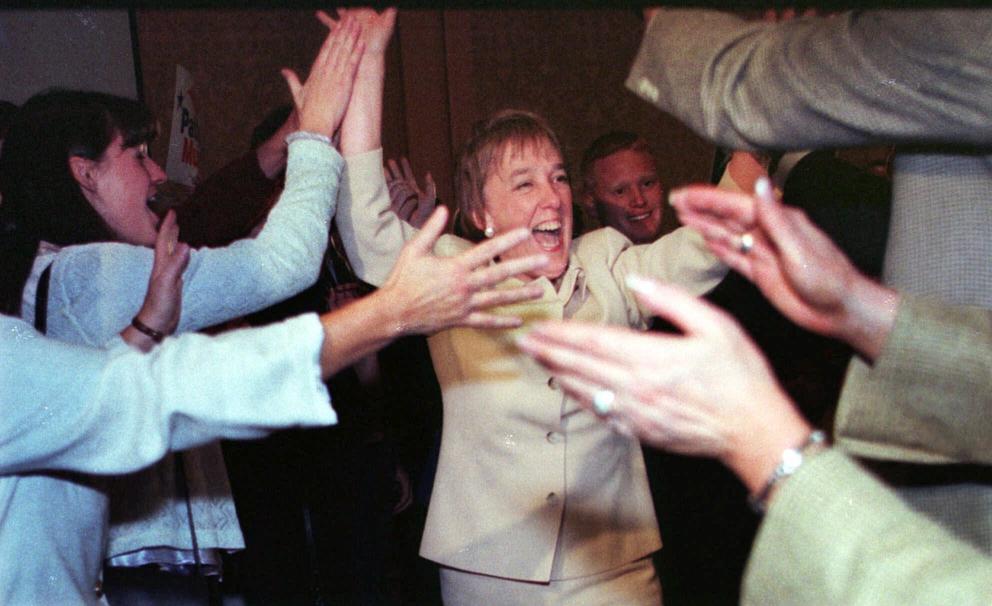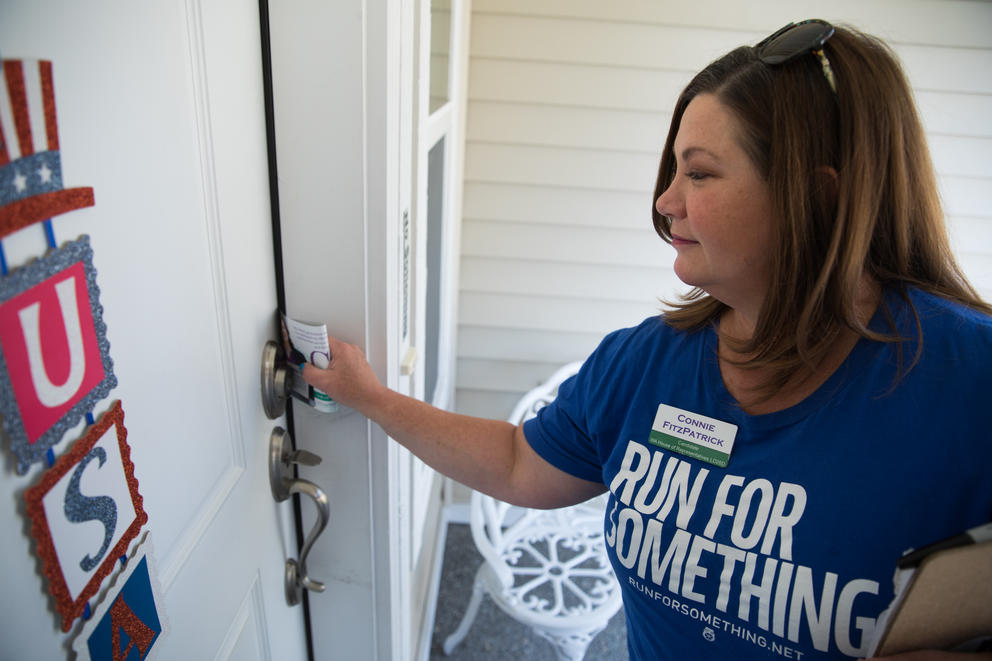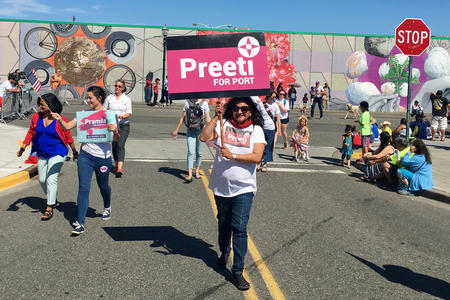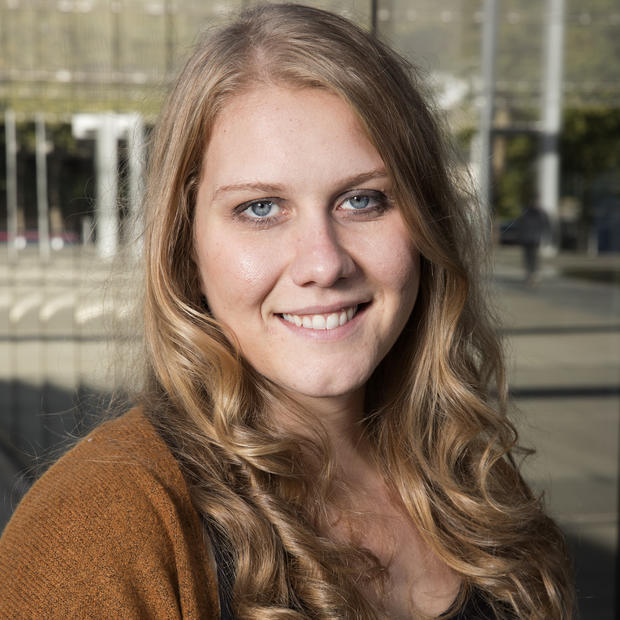This is a version of Crosscut's election newsletter. Sign up here!
Before anyone knew who Patty Murray was, she was a mom driving home from Olympia with two young kids in the back seat of her car — and she was fuming. A hands-squeezing-the-steering-wheel kind of angry.
Earlier that week the instructor at her kids’ preschool informed her that the program was closing because of budget cuts enacted by the state Legislature.
Up to that point, Murray, a teacher, hadn’t been politically active. Despite growing up in Washington state, she had never even been to the state capitol. But she put her kids in the car and drove to Olympia anyways.
When she got to the capitol campus, she tried talking to legislators, but no one would listen. When she finally found a state legislator who would, he let her talk and then looked right at her and said, “That’s nice, but you can’t make a difference. You’re just a mom in tennis shoes.”
As she drove home to Bothell, she made a promise to her son and daughter. “I’m not going to let him get away with this,” she remembers repeatedly telling them. “He is not going to get away with this.”
Then she started plotting.
“I started thinking, okay, what can I do?” Murray says now. “If I call five of my friends and we find five other people … how do we reach more people? How do I get in contact with other moms and dads throughout the state who have kids in preschool and get them motivated? And that’s what we did.”
Murray helped build a coalition of 12,000 other angry parents. They sent letters, made phone calls and rallied their children on the steps of the capitol. Just three months after the coalition began its campaign, the program was reinstated.
“That was my lesson in life,” she says. “You can sit at home and gripe about what happens to you, or you can get angry, get involved and make the world work for you.”
With that lesson in hand, Murray would begin a career as an elected official, winning first a seat on the Shoreline School Board in the mid-‘80s and then a state senate seat. Then, in 1992, she would ride another wave of anger to the U.S. Senate, where she is currently serving her fifth term.
That year was dubbed “The Year of the Woman” after four women were elected to the Senate, following Clarence Thomas’ confirmation to the Supreme Court despite accusations of sexual harassment from his former assistant Anita Hill. Murray and others were spurred to action after watching how Hill was treated when the all-white, all-male Senate Judiciary Committee questioned her.
Murray’s story of political awakening was one of many noted in Rebecca Traister’s new book, “Good and Mad,” which traces how the anger of women has shaped U.S. history and laid the groundwork for present day events like The Women’s March. “At all the marches, all the rallies, you’ll see one sight over and over again,” she writes. “It is a Mexican proverb, apparently taken from the Greek: ‘They thought they could bury us; they didn’t know we were seeds.’ Women’s anger has been buried, over and over again. But it has seeded the ground; we are the green shoots of furies covered up long ago.”
Women’s anger is again playing a role in our politics. Fueled by President Donald Trump’s election, the #MeToo movement and the confirmation of Brett Kavanaugh to the Supreme Court, Democratic women are running for more positions in the state Legislature and other local offices than ever before.
According to five women interviewed for this story, this anger is complicated. They’re fed up, frustrated, tired of the status quo — but they’re not resigning themselves. Instead they say they’re owning their anger and using it to answer one big question: What am I going to do about it?
“In some ways I hesitate to use the word anger because men turn that against women — angry, emotional creatures,” says Tina Podlodowski, chairwoman of the Washington state Democratic Party. “Instead we’re channeling that into taking those seats of power and running for office, taking the reins of the system by becoming things like state party chairs, campaign managers and community organizers.”
It’s a national trend that is finding expression in Washington state politics, where a historic 105 women ran for state House and Senate in the Aug. 7 primary election. Of those women, 90 moved onto the general election, 70 percent of whom identify as Democrats.
“I think Donald Trump spurred a whole new set of activists to the forefront and has continued to spur them on,” Podlodowski says. “I think this is a moment in time where women have seen the impact they can have politically and they’re just not going to put up with it.”
For Connie Fitzpatrick, the sense that she didn’t do enough in the run-up to the 2016 election had her searching for a way to make a real impact in politics. But once she read about the bad behavior by one of her district’s state legislators, she knew she had to channel her energies into running against him to represent the 26th Legislative District.
In April 2017, The News Tribune reported on verbal abuse in Rep. Jesse Young’s legislative office, quoting former staffers who said he was prone to “screaming fits.”
“I saw the hostile behavior in his office and that was unacceptable to me and fueled my fire,” Fitzpatrick says.
A small business owner and Navy veteran with no experience in electoral politics, Fitzpatrick easily advanced to the general election, beating the Republican incumbent by nearly 7 percentage points in the Aug. 7 primary.
“Women have had enough,” Fitzpatrick says. “The combination of the #MeToo Movement, Times Up, the political climate … the women I’ve talked to are angry, but we are trying to do something about it.”
Get the latest in election news
In the weeks leading up to each election (and occasionally during the legislative session), Crosscut's Election newsletter will provide you with everything you need to know about races, candidates and policy in WA state.
Kathy Gillespie knows that anger isn’t enough. She first ran for state representative in the 18th Legislative District, near Vancouver, in 2016 after sitting on the school board, where she grew frustrated with the way education funding was handled. She ended up losing by about 14 percentage points in that election, but took with her lessons she’s using in her second run for the seat. This year, she started campaigning earlier, hired consultants and made the race her sole focus. She has also seen a shift in the political environment that, she says, has helped her connect with voters.
“Things are different [from the last race] because people are uneasy about where we are nationally and at the state level,” Gillespie says. “What has changed is that the national scene has changed enough to cause the people I speak to when I’m knocking on doors to question: Is this the direction we want to go in? And if not, what is my role in changing things?”
The district Gillespie is running in hasn’t elected a Democrat in 20 years, but it is a politically and economically diverse district containing six of the seven incorporated cities in Clark County. To the south are urban areas like Camas and Vancouver, while communities with roots in agriculture and timber like Yacolt and La Center sit to the north of the district. The district is also home to Ridgefield, which has been named Washington’s fastest growing city from 2013 to 2017, due to land availability and its proximity to Portland and I-5.
“[The District] has had a population gain of 30 percent, so a lot of people are coming in and bringing with them different expectations, dreams, aspirations — and our communities are responding to that,” Gillespie says.
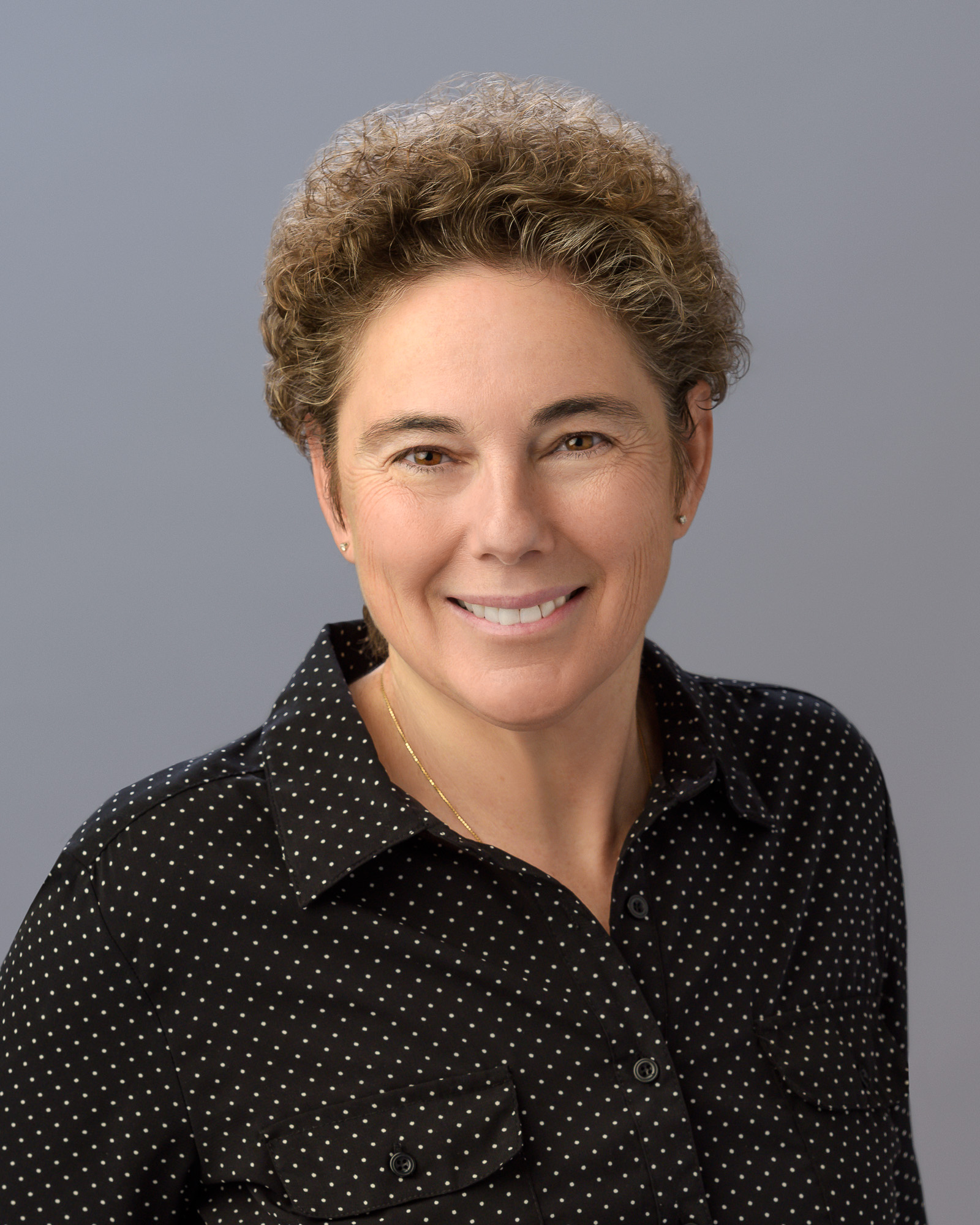
Gillespie hopes she can offer that type of leadership and she just might. Gillespie could flip the historically Republican district. In the primary, she beat Republican Larry Hoff by four points and Democrats are pouring money into her race. According to Public Disclosure Commission filings, the House Democratic Campaign Committee has given Gillespie $75,000.
For Gillespie, this moment is less about being angry and more about seeing an opportunity to do better. She says she understands female rage, but internalizes it differently.
“I think [women] look to our leaders and don’t necessarily see ourselves in those leaders and we don’t hear them reflecting back to us our values or our hopes and dreams for our children and communities — the women running recognize that it’s up to them,” Gillespie says. “There is no baton to pass to anyone, the baton is in your hands now and you need to step up and do the work. I’m not surprised at all – when women feel things aren’t going well, they decide they have to do something.”
It’s that sense of responsibility that pushed Sasha Bentley to first run for Klickitat County Democratic Party Chair last year — joining a number of other women who began organizing and running for office in the largely rural county. She won and, after attending the Women’s Convention in Detroit in October of 2017, decided to run to represent the 14th Legislative District that runs from Yakima to White Salmon.
“I think a lot of women are feeling anger because feeling pushed aside fires us up,” Bentley says. “For me, it wasn’t anger as much as responsibility and realizing I have the responsibility to change what I thought was wrong.”
Bentley, Gillespie and Fitzpatrick are all part of a larger movement — one that, like the 1991 election that vaulted Patty Murray into national politics, is being labeled as yet another “Year of the Woman.”
And Sen. Murray says 2018 feels exactly like 1992: Women don’t want to sit at home and let things happen to them. There is one difference she recalls, though.
“When I ran in 1992, I had people say to me ‘Just call yourself Pat, so no one knows you’re a woman,’” Murray says. “That was the exact opposite of why I was running. No one would say that to a woman today, because they know women are effective and they can do the job. That has changed — and I’m delighted to see it.”


